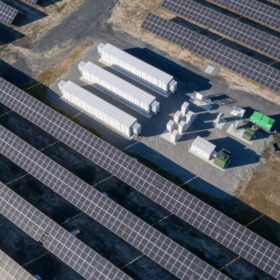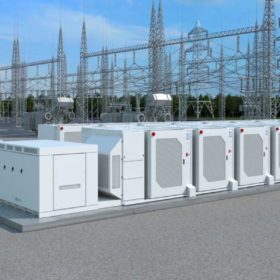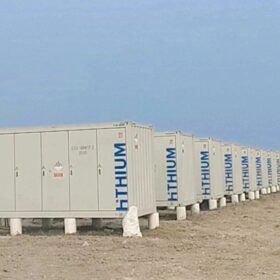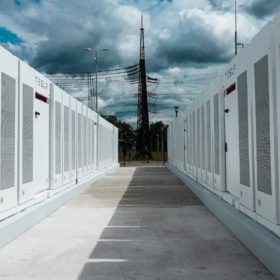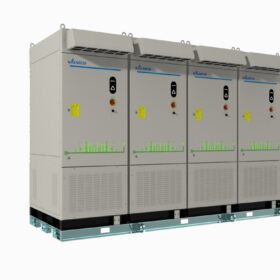SECI concludes 1.2 GW solar plus 600 MW/3,600 MWh storage tender at INR 3.12/kWh
The Solar Energy Corp. of India’s (SECI) tender for 1.2 GW of interstate transmission system (ISTS)-connected solar projects, integrated with 600 MW/3,600 MWh of energy storage systems (ESS), has discovered a tariff of INR 3.12/kWh.
Power Mech awarded 2 GWh battery storage project in West Bengal
Power Mech Projects Ltd has won a contract to set up a 250 MW/1,000 MWh standalone battery energy storage system (BESS) at Goaltore, Paschim Medinipur, West Bengal, on a build-own-operate (BOO) basis, with a greenshoe option of 250 MW/1,000 MWh at Durgapur Project Ltd (DPL) campus. The project, awarded by West Bengal State Electricity Distribution Co. Ltd (WBSEDCL), comes with a 100% off-take guarantee.
India’s solar capacity additions on track: SBICAPS
India is estimated to have added a record 40 GW of solar capacity in CY 2025, supported by strong utility-scale execution and a surge in rooftop installations. Energy storage tendering also picked up pace.
Clean-tech startups are quietly turning India’s air pollution crisis into a renewables opportunity
Startups are rewriting the narrative of India’s environmental challenge by building a bridge between air quality restoration and renewable energy expansion—a synergy that promises to fundamentally reshape how India confronts both crises simultaneously.
Hartek secures INR 353.77 crore solar and battery storage EPC project in Karnataka
Hartek Power has secured an engineering, procurement and construction (EPC) contract worth approximately INR 353.77 crore for a 280 MW AC (410 MWp DC) solar PV power plant integrated with an 80 MW/320 MWh battery energy storage system (BESS) in Karnataka.
Axis Energy proposes INR 31,750 crore renewable energy investment in Odisha
Axis Energy plans to develop a diversified portfolio of nearly 5 GW of clean energy capacity across wind, solar, agri-photovoltaic (agri-PV), hybrid projects, and battery energy storage systems (BESS) with an investment of INR 31,750 crore.
China connects world’s largest vanadium flow battery project
The GWh-scale long-duration energy storage project is expected to reduce curtailment in Xinjiang, a region of China with high solar and wind generation, and transmission bottlenecks. The flow battery installation is co-located with a PV plant.
L&T commissions 185 MW solar plus 254 MWh battery storage project in Bihar
L&T Construction has commissioned 185 MW of grid-connected solar capacity coupled with a 254 MWh battery energy storage system at Kajra in Bihar’s Lakhisarai district, marking India’s largest commissioned solar-plus-BESS project to date.
India’s energy storage market poised for breakout year: IESA
While 2025 was marked by an unprecedented 102 GWh of energy storage tenders, 2026 will see projects awarded since mid-2023 finally materialize into commissioned assets, in line with typical project timelines of 18–24 months.
Delta Electronics India to supply 110 MW of power conditioning systems for Prostarm’s battery storage projects
Delta Electronics India will supply 100 units of its made-in-India 1.1 MW bi-directional power conditioning systems to Prostarm’s battery energy storage projects for power utilities, including Bihar State Power Generation Company Ltd and Adani Electricity Mumbai Ltd.
